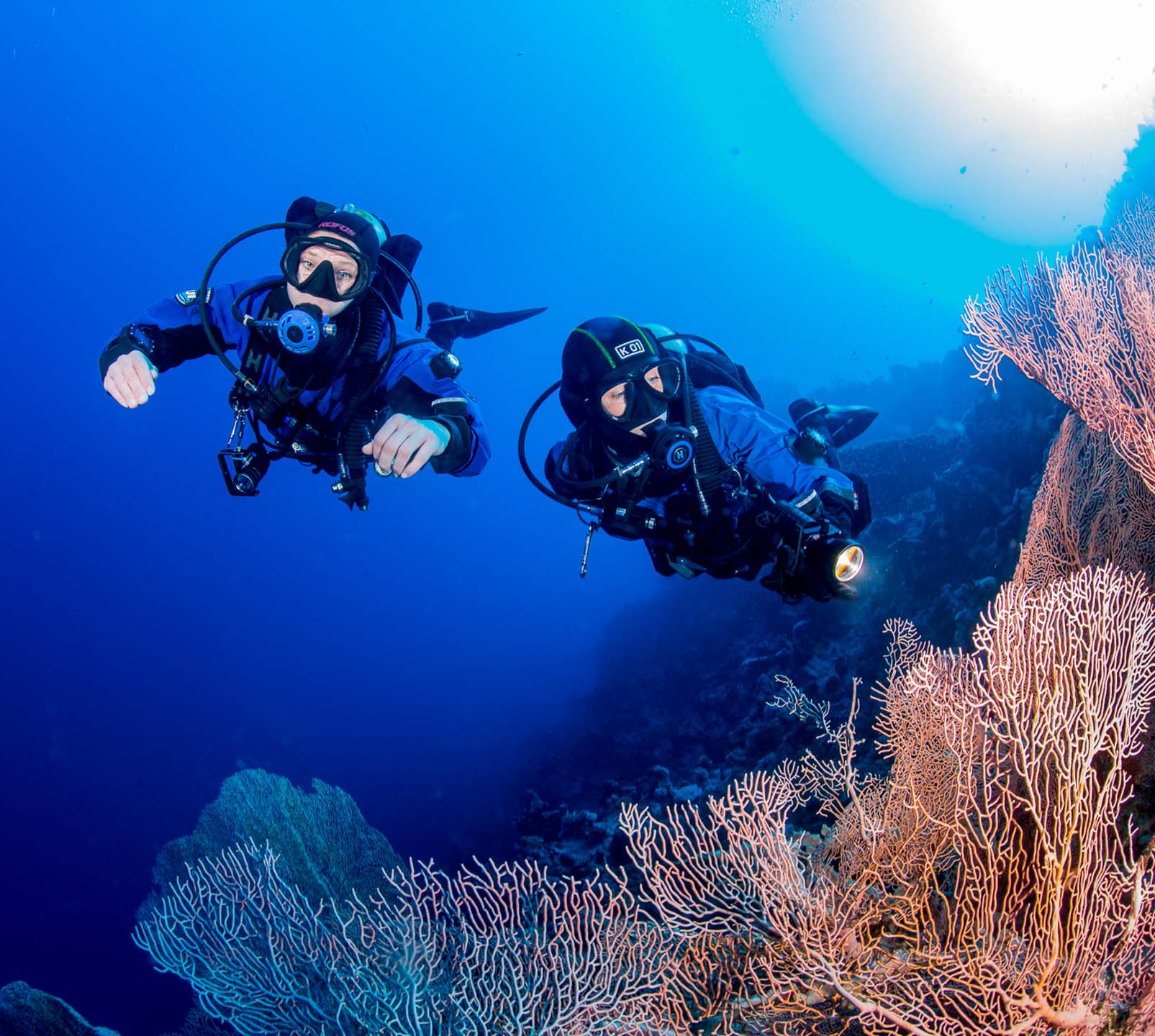Advanced Open Water Diver
ADVANCED OPEN WATER DIVER
(RECREATIONAL DIVER LEVEL 2)
WHY TAKE THIS COURSE?
GUE’s Advanced Open Water course is designed to prepare divers for deeper recreational diving. Students will learn how to navigate underwater, how to dive at night or in low visibility, how to help a team member who is distressed (rescue training), and how to plan dives to 100 ft/30 m.
Successful completion of this course will allow you to explore thousands of wrecks and reefs hidden at depths you may not yet be able to reach without further training and experience. If you feel your current ability to navigate falls short, you want to be prepared to help other divers, or you’d like to decrease your dependency on dive guides, then this is the course for you.

WHO IS IT FOR?
Divers who have passed GUE’s Open Water course, GUE Performance Diver, or GUE Fundamentals and who have logged 15 non-training dives are welcome to sign up.
WHAT WILL I LEARN?
This course consists of three primers: Navigation, Rescue, and Deep. Navigation includes learning to use a primary light, opening up your diving options to include night dives and low visibility conditions, as well as more complex compass navigation in conjunction with natural navigation, and how to lay a line. During the rescue portion, you will build on what you have learned by practicing search patterns for emergency management and conducting rescues from land, the surface, and underwater. Finally, the deep portion of the course can be done using either nitrox 32 or triox 30/30. You will learn how the gas will affect you at depth, how to plan deeper dives, and how to ascend and descend while maintaining control. Performance Divers will also learn how to deploy an SMB during the navigation portion of the course.Overall, you will grow into a much more confident and capable diver.
Applicants for a GUE Advanced Open Water Diver program must:
- Be a minimum of 16 years of age.
- Be physically and mentally fit.
- Be a non-smoker.
- Be able to swim.
- Obtain a physician’s prior written authorization for use of prescription drugs, except for birth control, or for any medical condition that may pose a risk while diving.
- Have passed the GUE Open Water (Recreational Diver 1), GUE Performance Diver, or a GUE Fundamentals course.
- Have completed at least 15 non-training dives.
- Have completed basic life support (BLS) training from a recognized training agency within the twenty-four months prior to the start of the class.
- If using doubles during the course, have conducted at least 15 non-training dives in the GUE double tank configuration or have conducted 10 dives utilizing doubles following completion of GUE Doubles Primer certification.
- If using a drysuit during the course, have conducted at least 15 non-training dives in a drysuit or have conducted 10 non-training dives utilizing a drysuit following completion of GUE Drysuit Primer certification.
- For a full list of course prerequisites, click here.
TAKE THE NEXT STEP
MASTER DIVER
This is a limited decompression course structured to teach advanced diving skills, prepare divers for utilizing decompression cylinders and double tanks, and to breathe helium-based breathing mixtures appropriate for deeper recreational diving to 39 m/130 ft.





